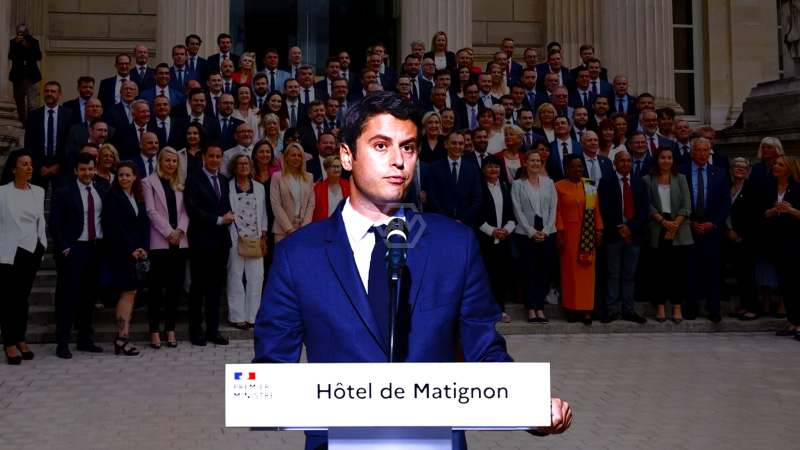- French National Assembly divided among three major political factions.
- Traditional winner-takes-all system struggles with coalition governance.
- Uncertainty and reluctance to compromise hinder forming a stable government.
France’s recent parliamentary elections have led to a split National Assembly, with three major factions vying for power. The New Popular Front (NFP) left alliance holds at least 190 seats, President Emmanuel Macron’s centrists have 164, and the far-right National Rally (RN) commands 143.
The internal dynamics within these factions further complicate matters. The NFP, dominated by the hard-left France Unbowed (LFI), faces resistance even from other left-leaning parties. Meanwhile, polling data reveals no clear public preference for any specific coalition, with many voters favoring a broad moderate alliance that would exclude both the RN and the LFI.
France’s New Political Landscape: Navigating Coalition Politics
The French National Assembly’s recent election results have left the chamber divided into three nearly equal parts, presenting a unique challenge for the country’s political system. The New Popular Front (NFP) left alliance, President Emmanuel Macron’s centrists, and the far-right National Rally (RN) each hold significant portions of the 577 seats, necessitating unprecedented coalition-building efforts.
This fragmentation is particularly problematic for France, where the political culture has long favored clear majorities and single-party governance. Historically, parliamentary elections followed presidential votes, usually granting the new president a supportive majority. Now, the need for collaboration among diverse and often conflicting political factions is a novel and daunting task for French politicians.
Internal disagreements further complicate coalition-building. The NFP’s largest component, France Unbowed (LFI), is contentious even among other leftist groups due to its strident rhetoric and controversial positions. This intra-factional discord makes it difficult to present a united front, weakening the NFP’s negotiating power and its potential to form a stable government.
Moreover, there is a significant reluctance among political leaders to engage in coalition talks. The fear of being perceived as betraying their voters and the looming 2027 presidential election exacerbate this hesitation. Leaders are more inclined to rule out potential partners than to find common ground, stymying progress towards a functional government.
The current French political landscape demands a shift towards compromise and coalition-building, a departure from its winner-takes-all tradition. This transition is crucial to forming a stable government capable of addressing the country’s needs and navigating the complexities of a divided National Assembly.
“Political parties are still thinking as if we were still in the previous system, where there was an absolute majority that governed, a single party.”
– Olivier Beaud, professor of public law at Paris’ Assas University.



